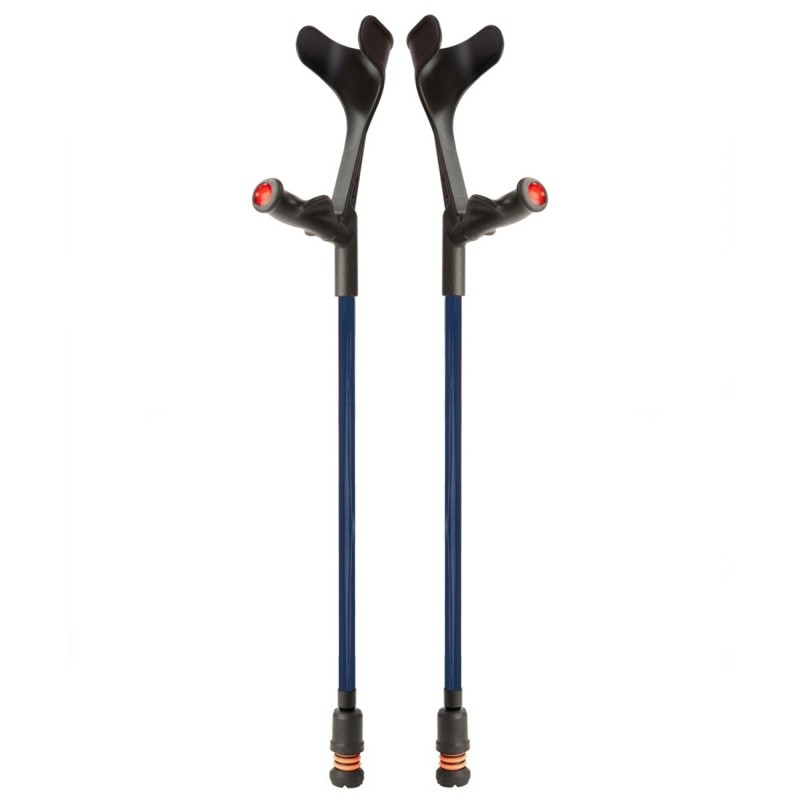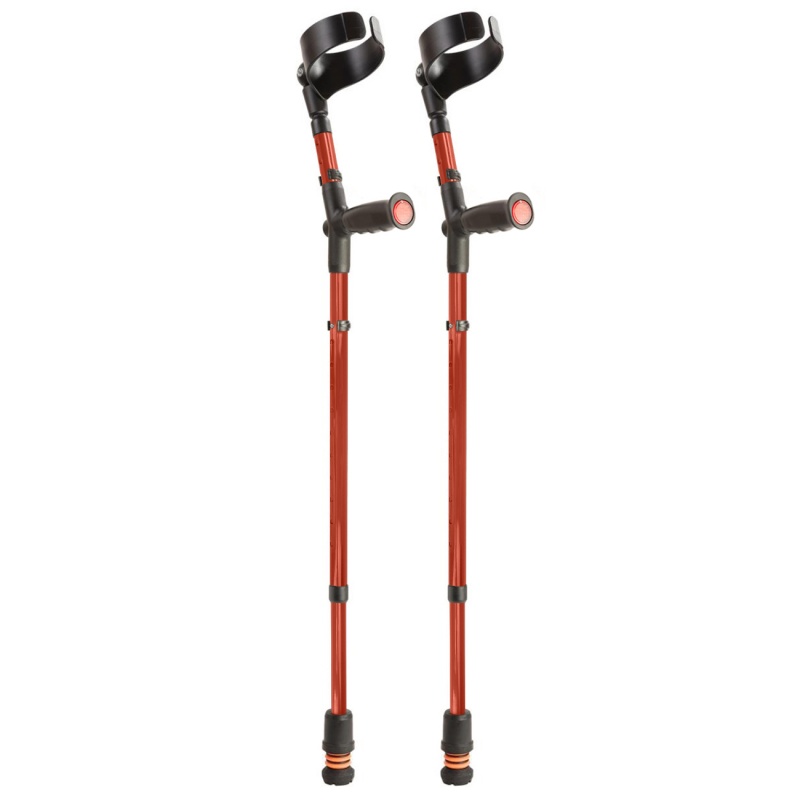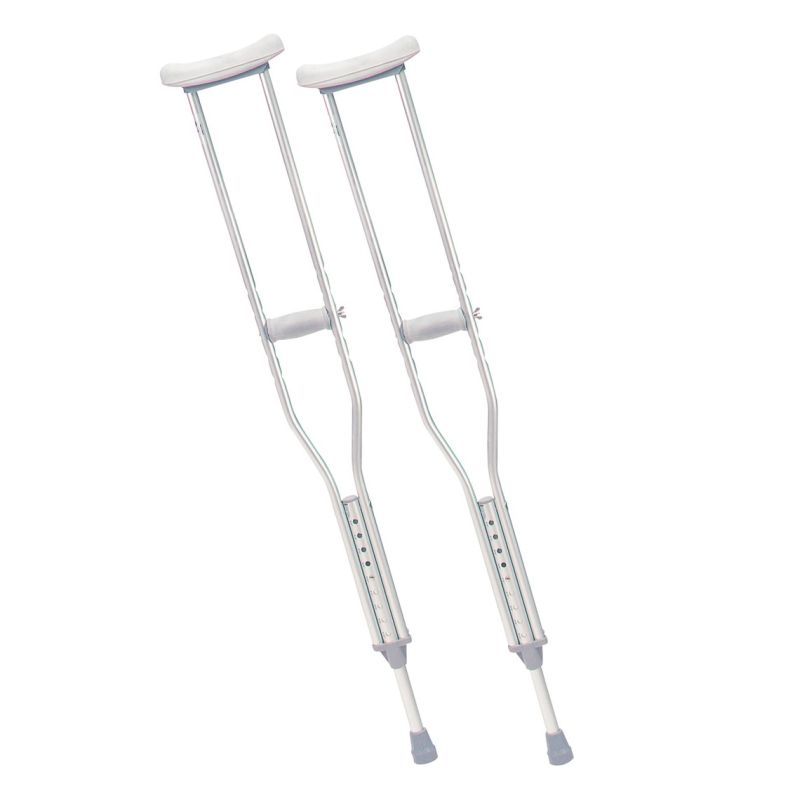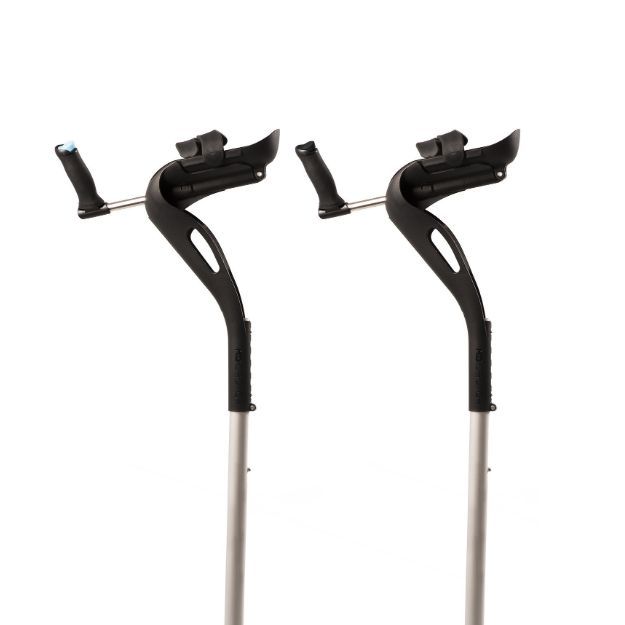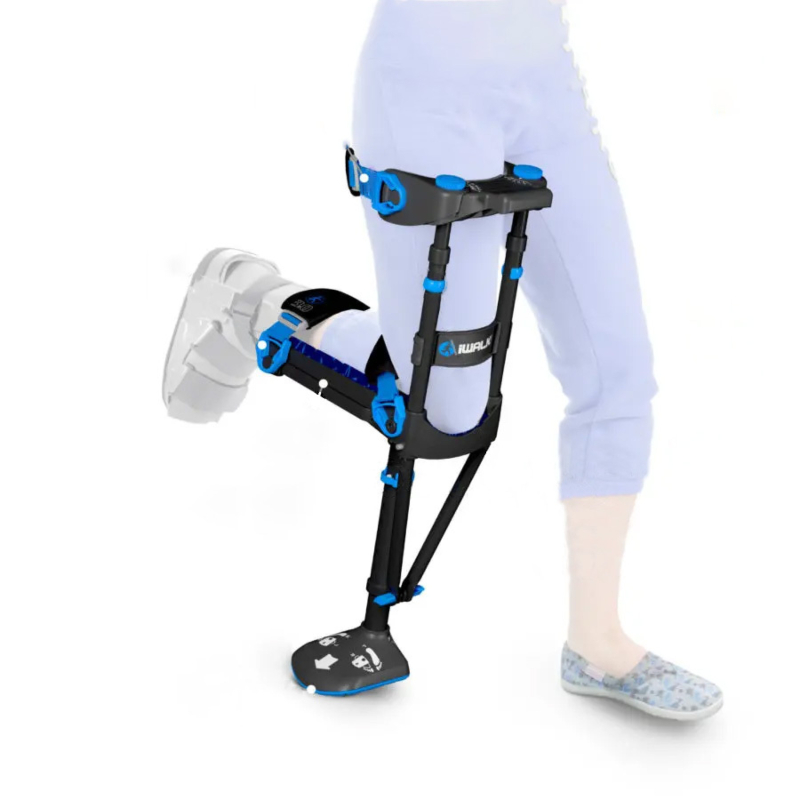Types of Crutches: Our Guide
If you're in the market for crutches, you may have noticed that there's a lot out there. This is fantastic because it offers you a lot of variety, but it does make choosing a little tricky. While there are no definitive 'best type of crutches', we hope you can find the best type of crutches for you with this Types of Crutches: Our Guide.
So whether you're recovering from an injury and looking to get back on your feet, or you're already on crutches, and just want to galvanize your gait, we can help!
What This Guide Will Cover?
Elbow Crutches
Instantly recognisable, Elbow Crutches are the most common crutch type in the UK and are commonly prescribed by the NHS. They offer a fantastic amount of close control and are generally recommended by doctors for long-term crutch users. We carry them in either Open-Cuff or Closed-Cuff and we go into the advantages and disadvantages of both below.
Open-Cuff Elbow Crutches
As we mentioned, elbow crutches (also known as Forearm Crutches) are the most common type that you're likely to use in the UK. They're great for the permanently disabled because they allow more precise movements and make going up stairs much easier. Due to the lack of a closed guard, Open-Cuff Elbow Crutches are easy to pick up and put down.
Advantages of Open-Cuff Elbow Crutches...
✔ Open cuff lets you put the crutches down and pick them up quickly
✔ Low hold point allows for precise movement easier use of stairs
✔ Distribute weight evenly and comfortably, ideal for long-term users
Disadvantages of Open-Cuff Elbow Crutches...
✘ Open cuff is not very secure, so so it's easier to drop crutches
✘ Requires a decent amount of arm and upper body strength
✘ Occupy both hands and so can make day-to-day tasks difficult
The featured image shows the Flexyfoot Comfort Grip Open Cuff Blue Crutches
Closed-Cuff Elbow Crutches
These Closed-Cuff Elbow Crutches are similar to the Open-Cuff Crutches above, the only difference being that guards on top are closed instead of open. The closed guard of these crutches makes them more secure and much harder to drop, even if the handles slip.
Advantages of Closed-Cuff Elbow Crutches...
✔ Closed-cuff makes crutch much harder to drop in case of a slip
✔ Lower control point for easier manoeuvring and climbing stairs
✔ Encourage more upright posture than underarm crutches
Disadvantages of Closed-Cuff Elbow Crutches...
✘ Closed cuff can be overly restrictive and difficult to get out of
✘ Requires a decent amount of arm and upper body strength
✘ Occupy both hands and so can make day-to-day tasks difficult
The featured image shows the Flexyfoot Standard Soft Grip Handle Closed Cuff Red Crutches
Underarm Crutches
Simple, lightweight and really easy to use, there's a reason why the classic design of Underarm Crutches is so longstanding. Also known as Axillary Crutches, they have a higher hinge point than elbow crutches so they don't require as much upper body strength, making them great for post-surgery.
Advantages of Underarm Crutches...
✔ Great for those with reduced upper body strength and balance
✔ Simple design is easy to use, ideal for people right out of surgery
✔ Underarm cushions offer resting point when breaks are needed
Disadvantages of Underarm Crutches...
✘ Their high swing point reduces close control and dexterity
✘ They can makes stairs tricky because of their extended length
✘ Can result in painful underarm pressure and soreness
The featured image shows the Drive Medical Aluminium Underarm Crutches for Adults
Gutter Crutches
If you're looking for the closer control of elbow crutches, but you have reduced upper body strength or sensitive hands, Gutter Crutches are a brilliant option. They hold weight along your forearms and elbows, more evenly distributing pressure than a traditional pair. Daily crutch use can take a real toll on your hands wrists, but gutter crutches can make getting around easier and less painful.
Advantages of Gutter Crutches...
✔ Great for those with low upper body strength and balance
✔ Evenly distributes weight across the forearms and elbows
✔ Rotating handles are ergonomic and reduce shoulder stress
Disadvantages of Gutter Crutches...
✘ Don't offer the same precision as standard elbow crutches
✘ More complicated, with more moving parts than standard crutches
✘ More expensive than elbow crutches due to advanced design
The featured image shows the M+D Adjustable Forearm Crutches
Hands-Free Crutches
For people with limited mobility or leg injuries, crutches can be liberating, but most of them require use of your arms. Hands-Free Crutches are secured around your injured leg, placing pressure and weight on your lower body instead of your upper body. As your hands are unoccupied while using hands-free crutches, they make day-to-day activities much easier.
Advantages of Hands-Free Crutches...
✔ Allows use of both hands, unlike the majority of other crutches
✔ Makes life easier and grands more independence for crutch users
✔ Only requires a single crutch due to ergonomic weight balancing
Disadvantages of Hands-Free Crutches...
✘ Full functionality needed in non-crutch leg for support
✘ You need to have average strength and balance pre-injury
✘ Very tight fitting, which can be uncomfortable for some
The featured image shows the iWALK 3.0 Hands Free Crutch
What Should I Think About Before Picking Crutches?
As you've seen above, picking your crutches is a really personal choice. For an example, an active twenty-five year old with a broken leg might need different crutches than a eighty year old recovering from hip surgery. The type of crutches you choose can depend on a number of factors, including, but not limited to:
- Upper body strength
- Type of injury
- Length of injury
- Balance level
- Strength on non-injured length
- Age
What Type of Crutch Is Best for Me?
Whether you've suffered an injury and only need crutches for a few months, or you always need them to get around, picking the right pair can be tough! We hope you've learned a thing or two about the differences between crutch types in this guide, to make your decision just a little bit easier. If you're still curious about crutches, why not have a look at our full range of crutches.
Have any questions about our crutches? Or just something to add? Let us know in the comments below or reach out on Twitter or Facebook!

